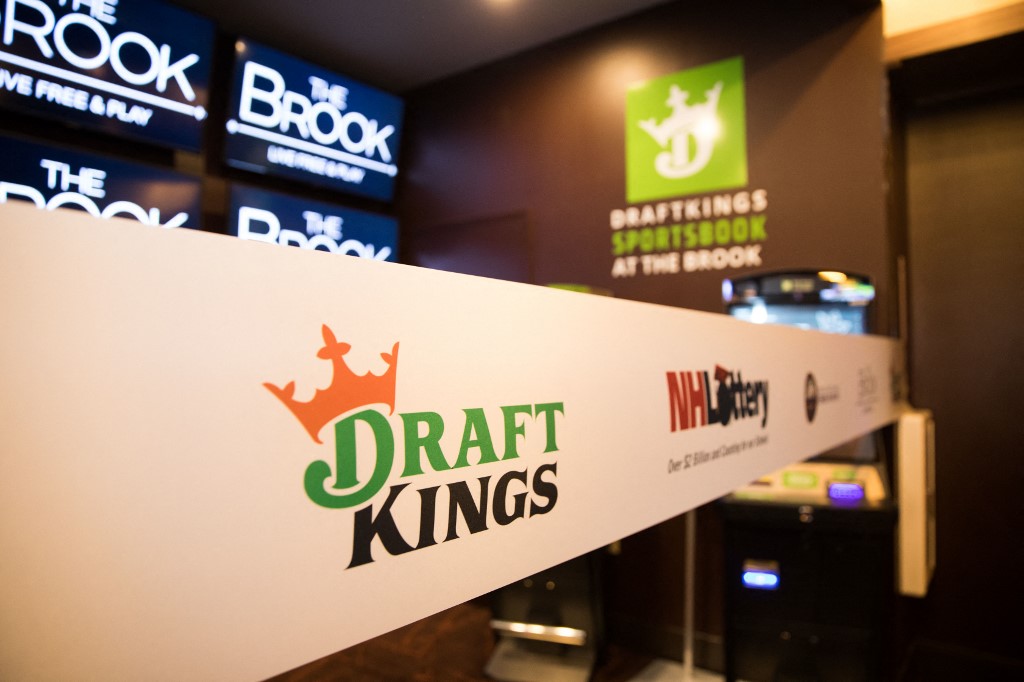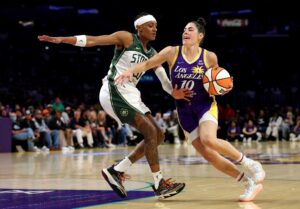DraftKings Announces Record-Setting Earnings While Monitoring Prediction Market
-
Bookmakers Review
- August 12, 2025

DraftKings’ second-quarter earnings call boasted record-setting numbers for the Boston-based bookmaker. However, its leap into the prediction market industry, which offers sports event contract trading, is still up for discussion.
DraftKings Q2 Report Rules
DraftKings is the Robin to FanDuel’s Batman in the mobile sports betting industry, but its Q2 earnings report last week proved that being a close second isn’t so bad after all. The company announced its revenue grew 36.9% to $1.51 billion while net income rose 147.5% to $157.9 million. Moreover, a significant category, Monthly Unique Payers (MUPs), increased 6% in addition to its average revenue per user increasing by 29%.
“We set records for revenue, net income, and adjusted EBITDA in the second quarter,” said DraftKings CEO Jason Robins in a statement.
High hold rates (win percentages) in May and June improved the sportsbook ledger markedly, as evidenced by a 45.3% year-over-year revenue increase to $997.9 million. The handle also gained 6.3%, ratcheting it up to $11.5 billion from last year’s second quarter, while the live betting segment saw a 16% increase over the same period.
And in those states where DraftKings has launched its iGaming platform, its online casino gambling revenue rose 22.6%. Therefore, all segments of the company revealed positive trends, but DraftKings did not overreact and raise 2025 guidance.
“We are on track to deliver revenue on the high end of the $6.2-billion to $6.4-billion range,” said DraftKings CFO Alan Ellingson.
Wait and See
It was reported that DraftKings was seeking regulatory permission to begin its own futures trading platform to compete with the likes of Kalshi and others that have muscled into the sports betting realm without requiring state regulatory oversight. However, the sports betting platform thought differently and rescinded its application in April from the U.S. Commodity Futures Trading Commission (CFTC).
Designated Contract Market (DCM) companies have traditionally operated in the commodities market, trading everything from gold to orange juice futures. Customers are given contracts on these futures, but the companies began to shift to political races last September, correctly predicting a landslide win for Donald Trump while traditional polls had Kamala Harris clearly in front.
Mobile sportsbooks are prohibited from offering contracts on political races, but the DCMs are federally governed by the CFTC, and it did not prohibit its trading platforms from entering this market. Nor did the CFTC interfere when the platforms began taking Super Bowl bets in February. The latter angered mobile sports betting companies and state regulators.
Early legal victories have allowed Kalshi and others to continue to operate unfettered and without state licenses in the sports betting industry, but a recent legal setback in Maryland may even the playing field in the future.
It was likely a case of DraftKings rethinking its strategy to enter as a Designated Contract Market platform that would alienate those state regulators and gaming industry stakeholders the company relies on in the mobile sports betting market.
However, DraftKings is still considering the futures market, as reports surfaced that it was contemplating acquiring the unlaunched DCM Railbird. As for any definitive statement, Robins said the following about his interest in entering the market:
“Hard to comment on specific discussions that we are having, but I think you can assume that we are more in monitor mode in terms of active discussions,” Robins said during last week’s quarterly earnings call. “A lot of what we need to see will come from watching how things unfold with others that are currently offering prediction markets. I think we’ll kind of have to see how that goes and evaluate it. It’s all happening in very fast real time, so definitely a lot to think through.”











